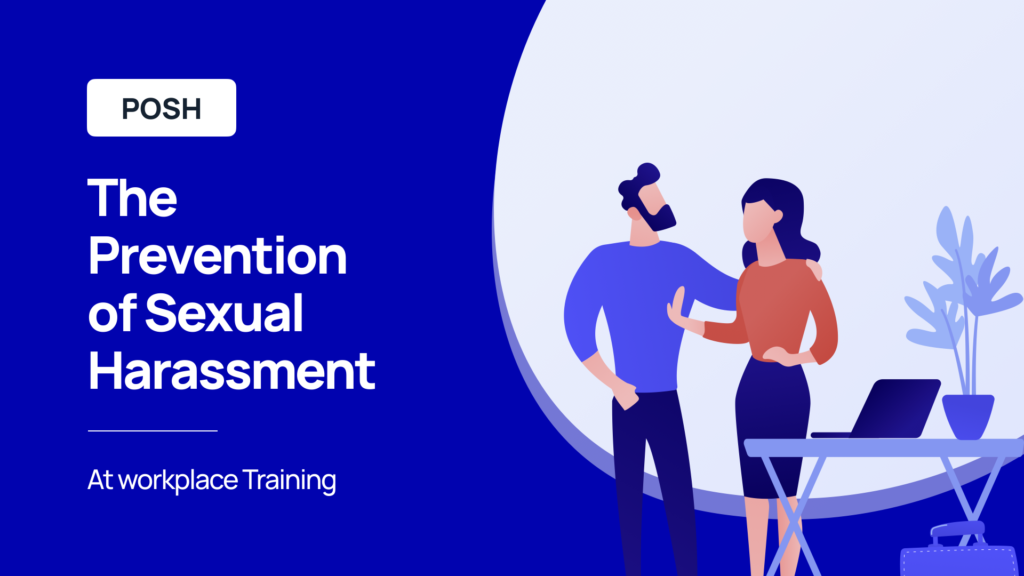POSH

POSH: It’s not just a legal checkbox; it’s a cultural cornerstone for any respectful and inclusive workplace.
🛡️ What Is POSH Training?
POSH stands for Prevention of Sexual Harassment. It stems from the Sexual Harassment of Women at Workplace (Prevention, Prohibition and Redressal) Act, 2013, enacted in India to safeguard women from sexual harassment at work.
POSH training is designed to:
- Educate employees about what constitutes sexual harassment
- Clarify reporting mechanisms and redressal procedures
- Promote respectful workplace behavior
- Ensure legal compliance for organizations
📚 Why Is POSH Training Necessary?
1. Legal Compliance
- The POSH Act mandates that all organizations with 10+ employees must conduct regular training.
- Non-compliance can lead to penalties up to ₹50,000 and even cancellation of business licenses for repeated violations.
2. Awareness and Clarity
- Many employees—especially women—may not recognize certain behaviors as harassment.
- Training helps distinguish between acceptable and unacceptable conduct.
3. Safe and Inclusive Culture
- It fosters a workplace where everyone feels protected, respected, and valued.
- Encourages bystander intervention and support for victims.
4. Reduces Incidents
- Educated employees are less likely to engage in or tolerate inappropriate behavior.
- Early recognition and reporting prevent escalation.
🌟 Impact on Employees and Organizations
| Impact Area | Benefits |
|---|---|
| 🧠 Employee Awareness | Clear understanding of rights and responsibilities |
| 🤝 Workplace Relationships | Builds trust, respect, and stronger team dynamics |
| 📈 Productivity | Reduces emotional distress, improves focus and morale |
| 💼 Organizational Reputation | Shows commitment to ethics, boosts brand image and employee retention |
| ⚖️ Legal Protection | Shields the company from lawsuits and reputational damage |
| 🧩 Inclusivity | Encourages equal treatment across genders and roles |
“POSH training shows that the organization cares about the employees, which can increase job satisfaction and engagement.”
🧭 Best Practices for POSH Training
- Conduct sessions at least twice a year
- Include all employees, regardless of gender or designation
- Use interactive formats—case studies, role plays, quizzes
- Ensure confidentiality and accessibility of reporting mechanisms
- Train the Internal Complaints Committee (ICC) separately for handling cases
If you’re thinking about implementing POSH training or improving your current program, I can help you design a customized training plan or even draft sample modules. Would you like help with that? Or are you exploring this for your own organization?